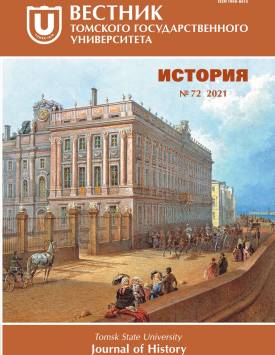Nikolai Berdyaev, messianism a-la Pologne and four powers pact
The article considers the discrepancy or even the contradiction between the expectations of the Russian Orthodox philosopher Nikolai Aleksandrovich Berdyaev, expressed by him in 1915, in connection with the future of relations between Russia and Poland and the real politics of the West European powers and Marshal Pilsudski according to the USSR in the 1920s-1930s. He imagined that Russia had to atone for the "historical fault" according to her western neighbor, and the souls of Polish and Russian peoples, enriched by mutual suffering, would, if not merge, coexist in some kind of harmony. After the end of World War I, instead of a "true communion" of souls, a Polish-Soviet war ensued, culminating in the Riga Peace Treaty of 1921. On his life mission, Marshal Pilsudski saw the restoration of the "former greatness of Poland" or the construction of the so-called Great Poland. Her core was to make up Poland within the borders of 1772, that is, including Belarus, Ukraine and Lithuania, around which federations were to be formed in the Baltic states, Finland, the Transcaucasian and North Caucasian peoples, and Russia was to retreat beyond the Urals. In other words, Pilsudski's messianism radically did not coincide with the ideas of N. Berdyaev. After the Locarno Conference, when Marshal Pilsudski realized that the Western powers, making the main bet on Germany, do not view Poland as an equal partner, are not inclined to take her into account in their combinations, but on the contrary are ready to sacrifice her interests to their own self-serving calculations, it is in May of 1926, he made a military coup, seizing positions that allowed him to single-handedly determine Poland's foreign policy. When the West European powers came up with the draft of the "pact of four", which was to act as arbitrator in regulating the Polish-German border, Marshal Pilsudski, seeking to restore the former greatness, blackmailing Hitler with the threat of a "preventive war", foreseeing what the Versailles-Locarno strategists for Germany the role of the anti-Soviet ram, forced him take into account in this dubious mission and Poland. After Prince Sapieha's report on Poland's readiness to go hand in hand with his Western neighbor "to economically master the eastern space", Minister J. Beck met with Foreign Minister J. Ribbentrop and the head of the propaganda of the III Reich J. Goebbels in August 1933, in Geneva, on whom a commonality of interests in this direction was agreed upon. The secret Polish-German negotiations that took place during the autumn ended with the signing on January 26, 1934, of the Declaration on the Peaceful Settlement of Disputes and the Non-use of Force, which the eminent diplomat Elmer called a camouflaged alliance. Thus, messianism a-la Pologne, unlike Berdyaev's "true communion" of the people's souls, presupposed the division of the USSR and the creation on captured lands of the Great Poland.
Keywords
Nikolai Berdyaev, messianism, Pilsudski, «four powers pact», march to the EastAuthors
| Name | Organization | |
| Morozov Stanislav V. | Belgorod State University | roland60@mail.ru; morozov_s@bsu.edu.ru |
References

Nikolai Berdyaev, messianism a-la Pologne and four powers pact | Tomsk State University Journal of History. 2021. № 72. DOI: 10.17223/19988613/72/21
